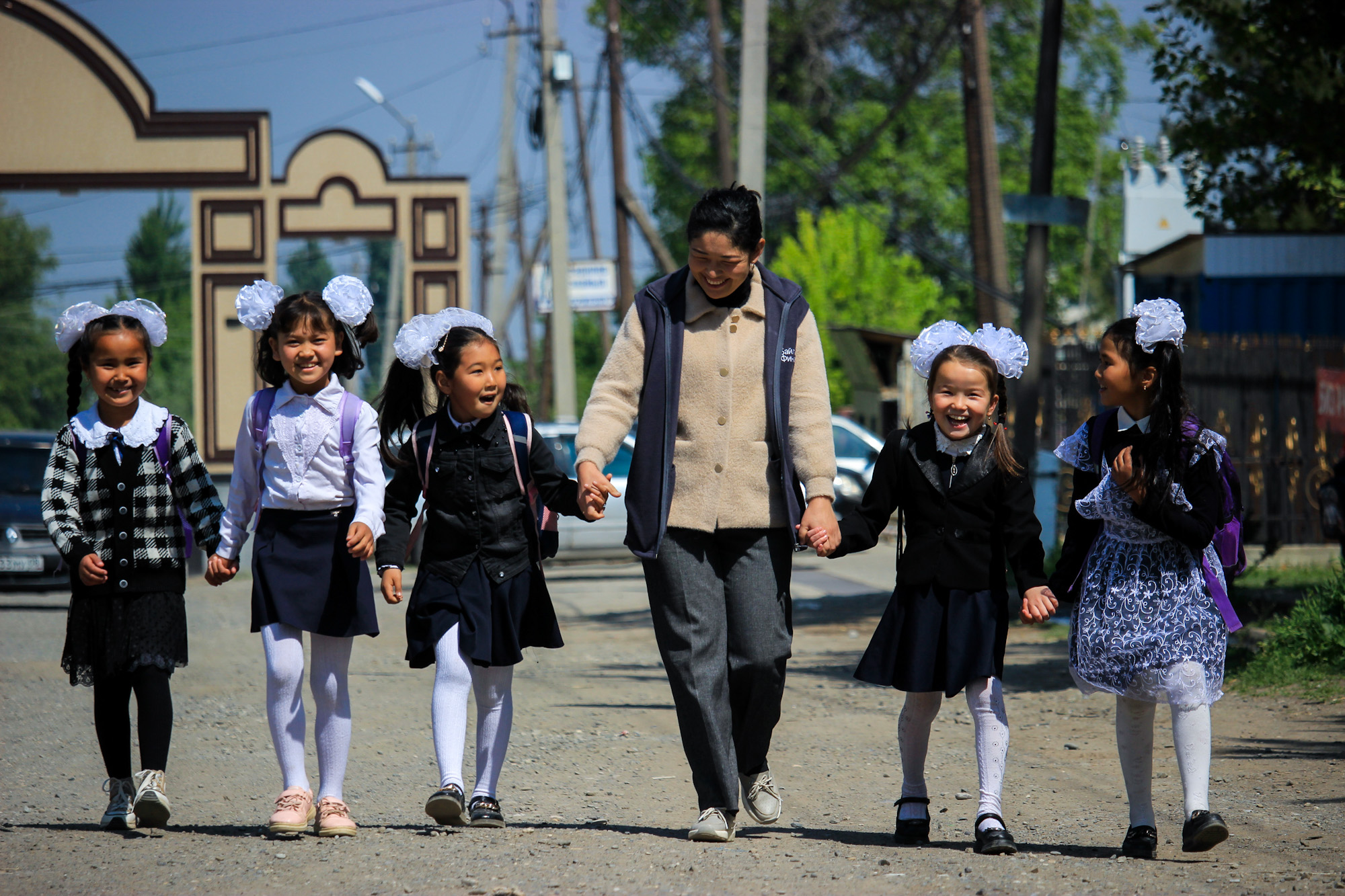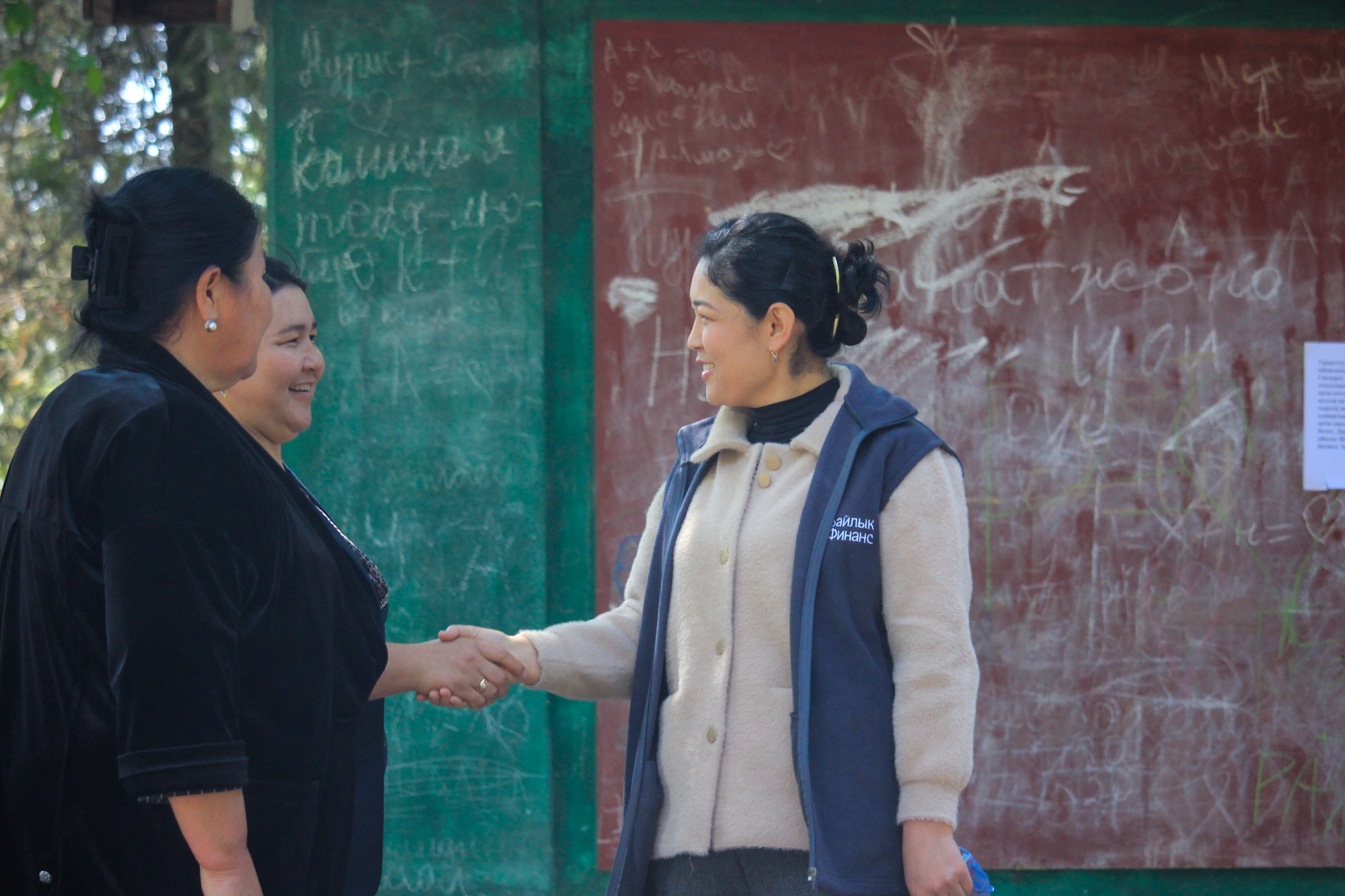
Nazira Tezebaeza, a woman in her early 30s from southern Kyrgyzstan, had never imagined she would participate in politics, let alone run for office. However, last April, Tezebaeza became one of the 102 women who won village council elections in Kyrgyzstan. Her story is one of many that the International Republican Institute (IRI) and its local partner the Women’s Democracy Network (ZDS) support in bolstering women’s political participation and leadership in Kyrgyzstan.
Kyrgyzstan is still a patriarchal society, with women underrepresented and undervalued in politics. Although there is a mandated 30% gender quota in the Kyrgyz Parliament, only 20% of its members are women. IRI has been a strong advocate for empowering women to be more active in political and civic life in Kyrgyzstan, working alongside ZDS.
ZDS has been IRI’s close partner since its inception in 2012, focusing on promoting gender balance in government bodies in Kyrgyzstan. “ZDS has been strengthening women’s role in decision-making for more than ten years, locally and nationally,” said Kulzhan Baibetova, the Executive Director of ZDS in Kyrgyzstan. “Today women can finally change the lives of community members and shape politics in Kyrgyzstan.” One of ZDS’ main successes to increase the number of women in politics was lobbying Parliament to pass legislation establishing a 30% gender quota in local councils, which was adopted in 2019.
Today women can finally change the lives of community members and shape politics in Kyrgyzstan.
However, local and regional governments have been slow to encourage more women candidates to run in local elections, causing many women to not even know where to start. To try to tackle this issue, IRI with ZDS conducted two rounds of information sessions in seven villages in the Osh and Batken region before the local April elections. The sessions sought to not only motivate more women to run for elections, but also to relay key information on election rules and procedures and provide advice on running campaigns to interested citizens. “Many women had not believed in themselves before these information sessions,” said Tezebaeza, who attended the sessions in the Batken region, “But the information sessions organized by IRI served as a trigger for many women.”
IRI’s partnership with ZDS in advance of the April local elections proved to be successful. Forty percent of the deputy seats in the seven villages where IRI conducted information sessions were won by women, with Tezebaeza winning a deputy seat outside of the 30% quota. In fact, 42% of the women who ran successful campaigns are IRI program alumni that attended these information sessions or who have undergone IRI trainings on the election process and tools for successful campaigns.

Tezebaeza asserts that these information sessions convinced her she could win the election, and provided her the knowledge that was critical in her success, “My campaign was based on solving social problems in the community and I took the election seriously. Everyone was involved in my campaign: my husband, mother-in-law, parents, friends, and colleagues. I actively met with voters, talked to them on the street, and even went around to the houses of people related to other candidates.”
As a newly elected deputy, Tezebaeza strives to improve her community, including by restoring a maternity hospital and creating a better environment for women to open and run businesses in her village. Even more, Tezebaeza’s electoral victory this year inspired her to consider running for the Kyrgyz Parliament in the future. For now, she hopes to help normalize and encourage more women’s political participation in her community, saying, “I realized that if women actively solve community problems and help each other, voters will change their opinion and vote for us more often.”
This year’s electoral success underscores the importance of providing women with knowledge and skills to participate in elections and building their confidence to run as candidates, particularly in the face of stereotypes about women’s role in Kyrgyz society. Expanding women’s political participation and leadership remains a cornerstone of IRI’s programming in Kyrgyzstan.
Top